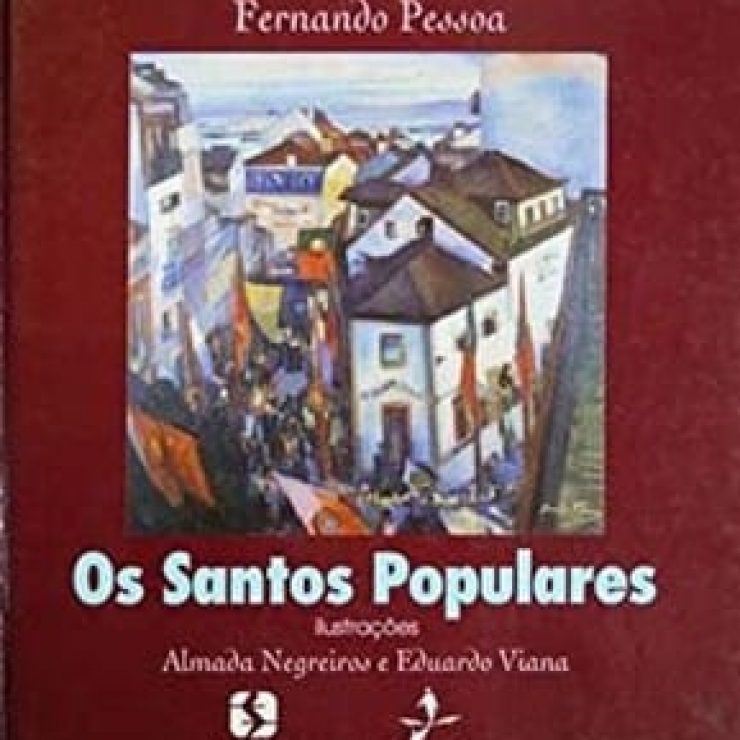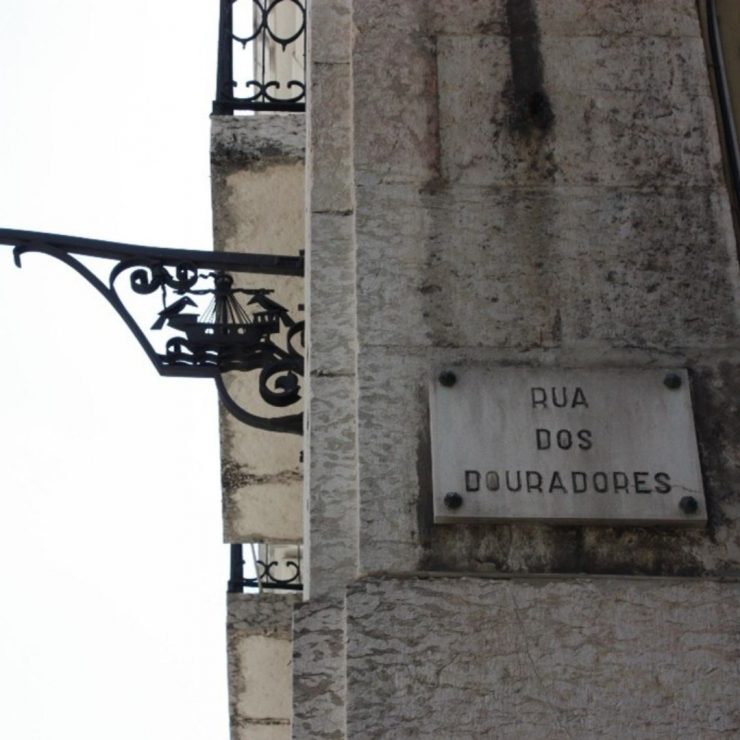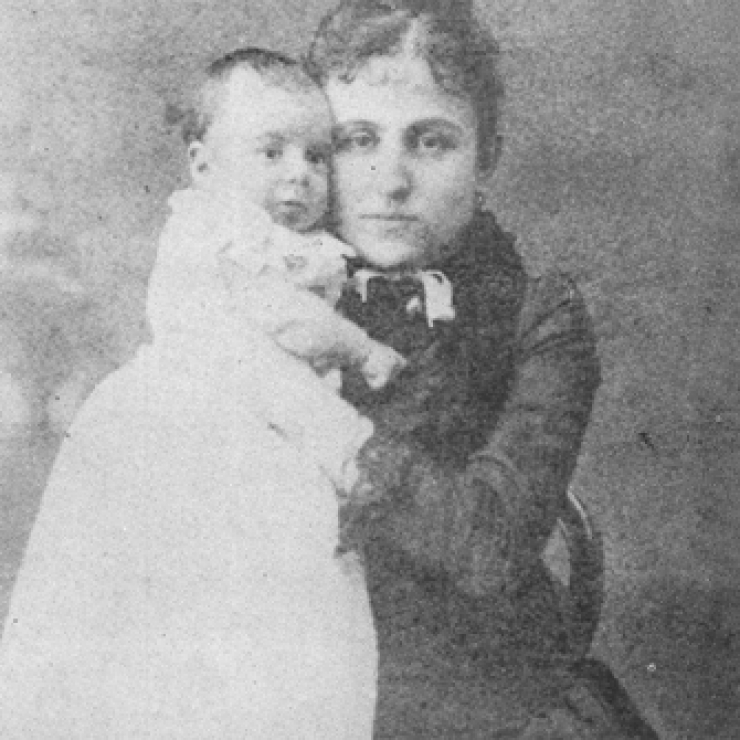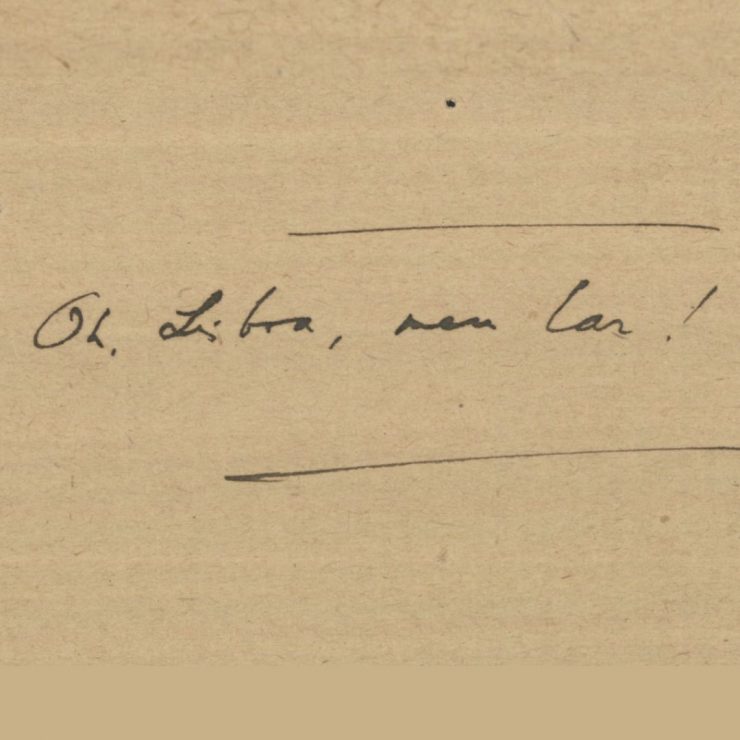The year 1920 is a milestone for Fernando Pessoa’s intimate, familiar and sentimental life. Indeed, this is the year the writer experiences the first phase of courting Ofélia Queirós . In addition, it is the year in which Pessoa’s mother – Maria Madalena Pinheiro Nogueira – returns to Lisbon from South Africa, with three of Pessoa’s brothers, after having lived there for about twenty-four years. From the literary outlook, 1920 is for Pessoa a period of writing and publications in two languages, Portuguese and English, at the beginning of a decade that will come to be prolific for the author in what concerns his publications.
The two women of his life
The mother and the girlfriend. We can say they were Fernando Pessoa’s two great female loves. His mother, Maria Madalena Pinheiro Nogueira (1861-1925), born on Terceira island and having lived most of her life between Porto, Lisbon and Durban, was the first character in whom the literary inspiration of the young Pessoa incarnated. A reader and book lover, she enjoyed writing verses, knew the French language and had family members who were also very proficient in letters. Clearly, all this influenced Pessoa’s literary education. It is also known he dedicated the first verses written in Portuguese to his cherished mother at the age of seven, in 1895, in the house at Rua de São Marçal, no. 4, where the family decided to live after the death of Pessoa’s father, Joaquim de Seabra Pessoa (1850-1893).
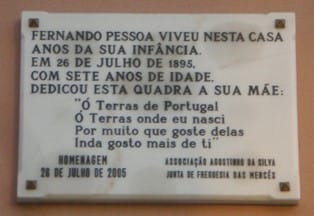
These verses surely contributed to the ‘mummy’ decision to take the son with her to Durban, South Africa, where she was going to join her new husband, João Miguel Rosa (1857-1919), who in that country worked as a Portuguese consul. Pessoa lived in this part of the British Empire between 1896 and 1905 but his mother returned to the Portuguese capital on March 30, 1920 with three of his brothers and at the time he was starting his courtship with Ofélia Queirós. This is when the poet moves to the apartment at Rua Coelho da Rocha, no. 16, 1º Dto, in the parish of Campo de Ourique, where he started to live with his own mother and his sister Teca (Henriqueta) while two more of his brothers, João and Luís, went to live in England. At this address – where The House of Fernando Pessoa exists today – Pessoa lived the last fifteen years of his life, alone from 1923, the year when his sister and mother moved to another address.
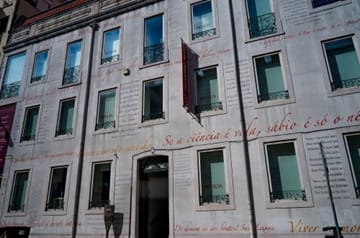
In the beginning of 192, in the letters addressed to Ofélia, the poet dedicated several passages to the change he made from Benfica to Campo de Ourique. In a previous article of this blog we discussed the first phases of this courtship. Here, we intend to highlight some verses that Pessoa himself dedicated to the young Ofélia in the beginning of 1920 at the time of the first kisses between them and a certain lack of definition that possibly still accompanied the relationship:
“I still don’t believe what I feel –
Your kisses, my love, which are
The dawn at the end of the room
Of my aching heart…”
The first phase of this courtship, as it is known, lasted until the end of November. On the 29th of this month, Fernando addressed Ofélia some mysterious words , by which, saying to her that “[the ] love passed” (which would have not been entirely true, because we know the courtship started in 1929), the poet affirmed with enigmatic expressions the priority of his intellectual mission over his sentimental life:
“My destiny belongs to another Law, of which existence you, Ofélinha, do not even know, and it is increasingly subordinated to obey Masters who neither allow nor forgive.
You do not need to understand this. It is enough that you keep me fondly in your memory, as I will, unalterably, keep you in mine.”
The «Law» to which Pessoa’s life obeys is the one that governs the existence of geniuses, those who have to contribute to the advancement of culture and civilization. According to Pessoa, this law would not have allowed him to distract his attention from what interested him most in life after all: being the major and most universal writer in Portugal, that is, the Supra-Camões’, as he defined himself in a famous 1912 article.
Sebastianism and cosmopolitanism
The prophetic and mysterious tone of Pessoa’s words reflects his great interest in the occultism and in esoteric themes. In 1920, these aspects took shape in an important poem that the writer dedicated “To the Memory of President Sidónio Pais”, published in February in the newspaper Acção , a militant body of Sidonism. However, it is not only the political figure of the President of the Republic Sidónio Pais (1872-1918) that interests Pessoa in this paper, later known by the title “To the Memory of President-King Sidónio Pais”. Indeed, the ‘President-King’ itself will be mostly presented as a myth in Pessoa’s verses, impersonating the messianic return of King Sebastian:
“Tall flower of the people’s marshland,
Morning before Redemption,
In it one time incarnated the
King Sebastian.”
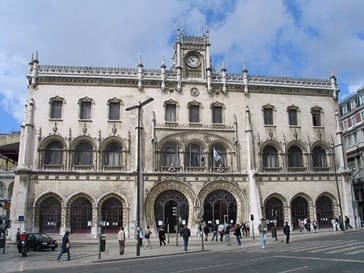
In turn, in Pessoa’s work, the mythical return of the Desire one is the metaphor of the beginning of a new cultural and spiritual era of humanity, the Fifth Empire, an expression that Pessoa reinterprets from the work of Padre António Vieira and to which he consecrates several texts, namely a poem in the book Mensagem (1934), of which we quote some verses:
“Greece, Rome, Christianity,
Europe – the four are gone
Where all age goes.
Who comes to live the truth
That King Sebastian died? »
An answer to this question is, we think, quite obvious. It is Fernando Pessoa himself who feels the mission and responsibility to inaugurate himself the Fifth Empire – that is, a new era of
civilization – through his work and the universalization of Portuguese literature, thus becoming the announced ‘Supra-Camões’.
However, Pessoa’s Sebastianism and the Fifth Empire of are not just exercises of an enigmatic occultism. According to Pessoa, it is also a vision of the history of humanity on the hand, to a new era of cosmopolitanism and synthesis between cultures by the other. In this regard, we can see Pessoa’s texts on Sebastianism and the Fifth Empire edited by Pedro Sepúlveda and Jorge Uribe (Ática, 2011). The so-called cosmopolitan “Fifth Empire” is somehow already lived by Pessoa himself, including his assumed cosmopolitanism, of which one of the signs is the fact that Pessoa was a poet of several languages (Portuguese, English and French). This lover of the Portuguese homeland, at the same time was an intellectual-citizen of the world who even published poems in England, as is the case of “Meantime”, published in London, in The Athenaeum, in 1920:
“Far away, far away,
Far away from here …
There is no worry after joy
Or away from fear
Far away from here.
[…]”
It should be noted that this year Pessoa also thought to go to London to live with his two brothers Luís and João, mentioned above. Still in 1920, personal cosmopolitanism is reflected in the plans for the constitution of the publishing house Olisipo, founded in the following year, which, according to its creator, should boost among other publications the Portuguese translations of foreign literary works.
References to Ancient Greece in the aforementioned poem “Fifth Empire” and to the concrete word Olisipo – the ancient and legendary name of Lisbon as a city founded by Ulysses – suggest an indirect connection with Pessoa’s heteronymous production of 1920, namely with the neo–pagan verses of Ricardo Reis and Alberto Caeiro . Both are undoubtedly among the heteronyms by which Pessoa most sought to reinterpret Greece’s aesthetic and philosophical legacy, which according to him is the cradle of civilization, both past, present, as well as the cosmopolitan and future “Fifth Empire”.
To conclude this brief and incomplete overview of the year 1920 of Pessoa’s life and work, we herein quote an orthonim poem in Portuguese, published that same year in the Resurrection, entitled “Abdication” . Here, the author again works on the king’s literary metaphor, which, as we have seen above, is directly related to the writer’s awareness of his literary and cultural mission. An awareness that would have had in 1920 moments of significant development. Here is then the Rei-Pessoa who voluntarily abdicates to immerse himself in the “eternal night” of inspiration, that “nothing” – quoting “Tabacaria” by Álvaro de Campos – in which, however, exist “all the dreams of the world”. A mysterious and fruitful matrix – like a mother – of Pessoa’s creativity.
«Take me, Oh eternal night, in your arms
And call me your son.
I am a king
That I voluntarily abandoned
My throne of dreams and tiredness.
My sword, heavy in drooping arms,
In manly and calm hands I have delivered;
And my and crown, – I left them
In the antechamber, broken into pieces.
My chainmail, so useless
My spurs, with such a futile tinkling,
I left them by the cold staircase.
I unclothed royalty, body and soul,
And returned to the ancient and calm night
Like the horizon at the end of the day. »
(F. Pessoa)
Fabrizio Boscaglia
_
Discover Lisbon & Pessoa from Lisboa Pessoa Hotel.

